Music Education Impact Archive 2017
Our Music Education Community here at Western is committed to scholarly work of various forms, from research to practice, to pedagogical work, to artistic production, to creative endeavours. In all, both faculty and students strive for work that is meaningful and has an impact both on the educational and musical community as well as in academic circles. Our diverse faculty and students are presenting and workshopping across Canada and all over the world. Our faculty is widely published and constantly leading the way in music education thought and practice.
Below you will find a selection of the ways in which we contribute to the development of music education practice.
View current stories on our main Music Education Impact webpage.
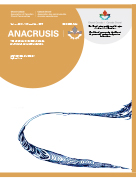 Master of Music Education student Laura Curtis just got her first publication in Anacrusis, the Journal of Choral Canada. Laura’s article is titled "Sex hormones and the singing voice: the adverse effects of fertility treatments" and provides insight into an area of research that has a lot to contribute to both scholars and practicing vocalists and vocal pedagogues.
Master of Music Education student Laura Curtis just got her first publication in Anacrusis, the Journal of Choral Canada. Laura’s article is titled "Sex hormones and the singing voice: the adverse effects of fertility treatments" and provides insight into an area of research that has a lot to contribute to both scholars and practicing vocalists and vocal pedagogues.
 Elizabeth Mitchell, PhD Candidate, presented a paper jointly authored with Cathy Benedict, at the Nordoff Robbins Plus Research Conference in London, UK, Dec 9-10, 2017. Their paper was entitled: Lives in Dialogue: "On Music Education, Music Therapy, and Music."
Elizabeth Mitchell, PhD Candidate, presented a paper jointly authored with Cathy Benedict, at the Nordoff Robbins Plus Research Conference in London, UK, Dec 9-10, 2017. Their paper was entitled: Lives in Dialogue: "On Music Education, Music Therapy, and Music."
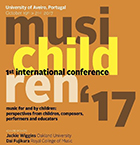 On October 21, 2017, Music Education PhD student, Kelly Bylica, presented at the First Annual MusiChildren Conference in Aveiro, Portugal. The conference brought together international perspectives from children, composers, performers, and educators on music created for and by children. Her paper, “Self-As-Creator: Exploring Composition and Self-Identity in Choral Music” explored the ways in which ensemble based education can engage in composition-based approaches to curriculum.
On October 21, 2017, Music Education PhD student, Kelly Bylica, presented at the First Annual MusiChildren Conference in Aveiro, Portugal. The conference brought together international perspectives from children, composers, performers, and educators on music created for and by children. Her paper, “Self-As-Creator: Exploring Composition and Self-Identity in Choral Music” explored the ways in which ensemble based education can engage in composition-based approaches to curriculum.
 On November 3-4, 2017, several faculty and graduate students from the Music Education department presented at the Ontario Music Education Association Conference, Interlude 2017, in Huntsville. Dr. Colleen Richardson, presented a workshop session on Slow Repertoire for Wind Bands. Dr. Cathy Benedict, gave a workshop entitled "Works at What?" focusing on pedagogy and language, and Dr. Patrick Schmidt, presented the workshop entitled "Teaching critical thinking skills aurally and creatively."
On November 3-4, 2017, several faculty and graduate students from the Music Education department presented at the Ontario Music Education Association Conference, Interlude 2017, in Huntsville. Dr. Colleen Richardson, presented a workshop session on Slow Repertoire for Wind Bands. Dr. Cathy Benedict, gave a workshop entitled "Works at What?" focusing on pedagogy and language, and Dr. Patrick Schmidt, presented the workshop entitled "Teaching critical thinking skills aurally and creatively."
Also presenting were Dr. Vanessa Mio, instructor of strings pedagogy at Western. Two PhD students, Laura Benjamins and Jen Hinkala, presented their research, respectively titled: “Musicians for life curriculum: Curriculum for the non-specialist educator” and “The music of self-care and wellbeing.” Dean Betty Anne Younker attended the conference and hosted a very well attended reception for graduates of the Don Wright Faculty of Music now teaching across Ontario.
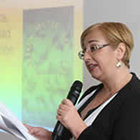 In September 2017, Dr. Ruth Wright gave the opening keynote address at the first music education seminar in the O’Higgins Region of Chile, at the newly opened University of O’Higgins in Rancagua. Wright's address considered music education from the perspective of emancipatory social science as conceptualized by the sociologist Erik Olin Wright (2006) which he describes as relying upon three fundamental tasks: 1, to diagnose and critique the world as it exists; 2, to imagine realistic alternatives; and 3, to comprehend barriers to their implementation. In applying these to music education Wright questioned the ability of current models to afford flourishing musical lives to all members of society. She presented some potential alternative approaches to music education based on principles of radical democratic egalitarianism.
In September 2017, Dr. Ruth Wright gave the opening keynote address at the first music education seminar in the O’Higgins Region of Chile, at the newly opened University of O’Higgins in Rancagua. Wright's address considered music education from the perspective of emancipatory social science as conceptualized by the sociologist Erik Olin Wright (2006) which he describes as relying upon three fundamental tasks: 1, to diagnose and critique the world as it exists; 2, to imagine realistic alternatives; and 3, to comprehend barriers to their implementation. In applying these to music education Wright questioned the ability of current models to afford flourishing musical lives to all members of society. She presented some potential alternative approaches to music education based on principles of radical democratic egalitarianism.
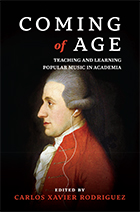 Two Music Education faculty are contributing authors in the new book release entitled Coming of Age: Teaching and Learning Popular Music in Academia. The book published by University of Michigan’s Maize Publisher in edited by Dr. Carlos Rodriguez. The book draws standpoints from various music disciplines and presents a diverse and up-to-date view on the role and status of popular music education. Dr. Ruth Wright’s chapter is called “The Long Revolution and Popular Music Education: Or, Can Popular Music Education Change Society?” and Dr. Patrick Schmidt’s contribution is called “Popular Music Education as Educational Policy.”
Two Music Education faculty are contributing authors in the new book release entitled Coming of Age: Teaching and Learning Popular Music in Academia. The book published by University of Michigan’s Maize Publisher in edited by Dr. Carlos Rodriguez. The book draws standpoints from various music disciplines and presents a diverse and up-to-date view on the role and status of popular music education. Dr. Ruth Wright’s chapter is called “The Long Revolution and Popular Music Education: Or, Can Popular Music Education Change Society?” and Dr. Patrick Schmidt’s contribution is called “Popular Music Education as Educational Policy.”
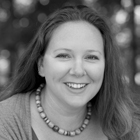 Masters in Music Education student, Laura Curtis, has been awarded second place in the 2017 CMEA/ACME Dr. Franklin Churchley Graduate Essay Competition. Laura’s essay, titled “The Gendering of Music: Breaking the Cycle,” discusses the ways in which socially-constructed gender norms play a role in children’s musical perceptions and choices, and some potential courses of action that may be taken by music educators to deconstruct these gender norms. As a winner of this national competition, Laura will have the opportunity to publish her essay in the Canadian Music Educator journal.
Masters in Music Education student, Laura Curtis, has been awarded second place in the 2017 CMEA/ACME Dr. Franklin Churchley Graduate Essay Competition. Laura’s essay, titled “The Gendering of Music: Breaking the Cycle,” discusses the ways in which socially-constructed gender norms play a role in children’s musical perceptions and choices, and some potential courses of action that may be taken by music educators to deconstruct these gender norms. As a winner of this national competition, Laura will have the opportunity to publish her essay in the Canadian Music Educator journal.
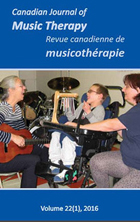 Elizabeth Mitchell (PhD Candidate Music Education) recently had an article published in the Canadian Journal of Music Therapy. This paper, entitled "Therapeutic Music Education: An Emerging Model Linking Philosophies and Experiences of Music Education With Music Therapy” was based upon research she conducted during her masters studies in music therapy.
Elizabeth Mitchell (PhD Candidate Music Education) recently had an article published in the Canadian Journal of Music Therapy. This paper, entitled "Therapeutic Music Education: An Emerging Model Linking Philosophies and Experiences of Music Education With Music Therapy” was based upon research she conducted during her masters studies in music therapy.
 The 10th International Symposium on the Sociology of Music Education took place at Institute for Contemporary Music Performance June 11-14, 2017, in London England.
The 10th International Symposium on the Sociology of Music Education took place at Institute for Contemporary Music Performance June 11-14, 2017, in London England.
This academic conference drew together music education academics from around the world to discuss issues, practices and perspectives that focus around connecting music learning and other musicking experiences with the lives, values, identities and communities of those involved. The Don Wright Faculty of Music was well represented with the following presentations:
Cathy Benedict: “True Threat, True Promise: Recklessness as the New ‘Praxis’”.
Leslie Linton: “Interpreting and (Re)producing Children’s Musical Cultural Capital: The sociology of childhood and Bourdieu in elementary music education”.
Patrick Schmidt: “Musical Virtual Hangouts: Changing Policy and Social Capital Strategy for Community Engagement in a Major US Orchestra”.
Ruth Wright: “Envisioning Real Utopias in Music Education: The democratization of music as culture”.
Kari Veblen presented SSHRC funded research with fellow Canadian scholar Janice Waldron: “Canadian Scottish Pipe Bands as On and Offline Convergent Communities of Practice”.
PhD Music Education students:
Alison Butler: “Does Bourdieu Have the X Factor? Habitus and capital in reality TV and music education”.
Kelly Bylica and Gabriela Ocadiz: “Reading Popular Music: Musicking and thinking critically” .
Download the full schedule here (PDF).
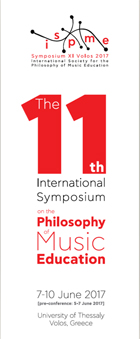 The International Society for the Philosophy of Music Education was founded at the Philosophy of Music Education International Symposium 5 at Lake Forest College, Lake Forest, Illinois, U.S.A., June 4-7, 2003 with Estelle Jorgensen (U.S.A.) and Frede Nielsen (Denmark) as co-chairs. Since 1990, nine international symposia have been held in Bloomington, Indiana, U.S.A. (1990), Toronto, Canada (1994), Los Angeles, U.S.A. (1997), Birmingham, U.K. (2000), Lake Forest, Illinois, U.S.A. (2003), Hamburg, Germany (2005), London, Ontario, Canada (2007), Helsinki, Finland (2010) and New York, U.S.A (2013). These symposia have attracted philosophers, musicians, teachers, and others interested in the philosophy of music education from around the world to discuss important matters concerning music teaching and learning.
The International Society for the Philosophy of Music Education was founded at the Philosophy of Music Education International Symposium 5 at Lake Forest College, Lake Forest, Illinois, U.S.A., June 4-7, 2003 with Estelle Jorgensen (U.S.A.) and Frede Nielsen (Denmark) as co-chairs. Since 1990, nine international symposia have been held in Bloomington, Indiana, U.S.A. (1990), Toronto, Canada (1994), Los Angeles, U.S.A. (1997), Birmingham, U.K. (2000), Lake Forest, Illinois, U.S.A. (2003), Hamburg, Germany (2005), London, Ontario, Canada (2007), Helsinki, Finland (2010) and New York, U.S.A (2013). These symposia have attracted philosophers, musicians, teachers, and others interested in the philosophy of music education from around the world to discuss important matters concerning music teaching and learning.
The 2017 symposium brought together a diverse array of international philosophers, scholars, teachers, teacher educators, and performers interested in engaging in philosophical research concerning music education. The symposium sought to encourage and stimulate discussion on a wide range of topics relating to the philosophy of music education from international and interdisciplinary perspectives.
Dean Betty Anne Younker responded to Paul Woodford’s paper “Harperland and American neoconservative disdain for music and the arts.”
Paul Woodford, also presented “On ‘The End of History’ and the Global Decline of Music Education.” (Woodford served as co-chair of the Executive Committee of ISPME from 2005 – 2007, which, in addition to his two year commitment to running the organization, included organizing and hosting the 2007 ISPME symposium here at Western University in 2007.)
Patrick Schmidt and Cathy Benedict sat on a panel with two other scholars from Greece and Sweden: Navigating Assessment: The Unending–And Unnervingly Narrow–Terrain. Benedict also responded to a paper written by Estelle Jorgensen and Iris Yob: “Metaphors for a change: A conversation about images of music education and social change.”
Ruth Wright was one of three panelists for the Music, Society, Education: Christopher Small revisited panel. Wright also responded to a paper by Cecilia Ferm-Almqvist: “How to become a guitar playing human being in the situation of ensemble courses – independent of sex; An episode of the pod-radio show Music and Equality.”
PhD Student Gabriela Ocadiz presented her paper: “Troubling Concepts of Coping: Uncomfortable Moments in Music Education”.
A pre-conference was held prior to the main conference in which PhD students could apply to work with a group of international professors on developing a philosophical argument. Two PhD students from Western were accepted to the workshop: Gabriela Ocadiz and Samuel Silva.
Western will be hosting this international conference in 2019.
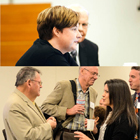 PhD Students Kelly Bylica and Elizabeth Kinghorn recently presented at the Desert Skies Symposium on Research in Music Education which took place February 23-25, 2017 at Arizona State University and is one of the longest continuously running independent research forums of its kind in the United States. Kelly presented her paper "Approaches to Composition in a Middle School Choral Classroom", which explores the challenges and successes of the implementation of a composition-based choral curriculum in a diversely populated Midwestern middle school.
PhD Students Kelly Bylica and Elizabeth Kinghorn recently presented at the Desert Skies Symposium on Research in Music Education which took place February 23-25, 2017 at Arizona State University and is one of the longest continuously running independent research forums of its kind in the United States. Kelly presented her paper "Approaches to Composition in a Middle School Choral Classroom", which explores the challenges and successes of the implementation of a composition-based choral curriculum in a diversely populated Midwestern middle school.
Elizabeth presented her paper, "Room Acoustics and the Singing Voice: The Effects of Environmental Reverberation on Vocal Intensity and the Perception of Vocal Effort in Trained Singers". This pilot project is the result of an interdisciplinary, collaborative effort between Kinghorn, Dr. Kevin Watson (Music Education) and Dr. Ewan Macpherson from National Centre for Audiology who identified definite trends in the ways in which singers in rooms with different amounts of perceptible reverberation are able to control vocal loudness/intensity, and established a workable methodology for future inquiry.
Photo credit: Mik Patton
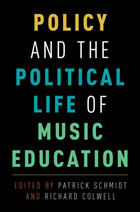 Dr. Patrick Schmidt, chair of Music Education at Western University has just published a new book titled Policy and the Political Life of Music Education. Published by Oxford University Press, this is first book of its kind in the field of Music Education. It offers a far-reaching and innovative outlook, bringing together expert voices who provide a multifaceted and global set of insights into a critical arena for action today: policy. On one hand, the book helps the novice to make sense of what policy is, how it functions, and how it is discussed in various parts of the world; while on the other, it offers the experienced educator a set of critically written analyses that outline the state of the play of music education policy thinking. See more information here.
Dr. Patrick Schmidt, chair of Music Education at Western University has just published a new book titled Policy and the Political Life of Music Education. Published by Oxford University Press, this is first book of its kind in the field of Music Education. It offers a far-reaching and innovative outlook, bringing together expert voices who provide a multifaceted and global set of insights into a critical arena for action today: policy. On one hand, the book helps the novice to make sense of what policy is, how it functions, and how it is discussed in various parts of the world; while on the other, it offers the experienced educator a set of critically written analyses that outline the state of the play of music education policy thinking. See more information here.
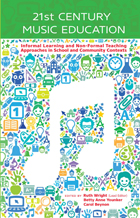 The Music Education Department is pleased to announce the upcoming release of 21st Century Music Education: Informal Learning and Non-Formal Teaching Approaches in School and Community Contexts edited by Dr. Ruth Wright and Dr. Betty Anne Younker, Dean of the Don Wright Faculty of Music. This book is being published by the Canadian Music Educators Association as part of their Biennial Series Research to Practice, featuring research from international contributors with a commitment to connect research to the practice of the profession. The book contains wonderful ideas to engage, include, and challenge learners and support professional development in music educators.
The Music Education Department is pleased to announce the upcoming release of 21st Century Music Education: Informal Learning and Non-Formal Teaching Approaches in School and Community Contexts edited by Dr. Ruth Wright and Dr. Betty Anne Younker, Dean of the Don Wright Faculty of Music. This book is being published by the Canadian Music Educators Association as part of their Biennial Series Research to Practice, featuring research from international contributors with a commitment to connect research to the practice of the profession. The book contains wonderful ideas to engage, include, and challenge learners and support professional development in music educators.
 Dr. Cathy Benedict and PhD students Alison Butler and Gabriela Ocadiz, from the Music Education Department at Western University, will be presenting at the Organizing Equality International Conference. This conference takes place March 24-26 2017, in London Ontario, and brings academics, artists and activists from around the globe to address inequality and develop new forms of knowing, thinking and acting together. This collaborative session focuses on the topic ‘Music: Transformative or Reproductive’, suggesting that social change, resistance and challenging the status quo doesn't happen simply through the notion that music crosses all boundaries as a "universal language", but through mindful, critical and interrogative problematizing. These three educators, from three different countries, will discuss different ways in which music education, without critical reflection, can reproduce assumptions, misconceptions and generalizations about race, socioeconomic status and gender within society. Giving the context of Arts Education, they hope participants walk away able to recognize that the theme, “organizing strategies” depends on interrogating assumptions and realizing shared values even with something as seemingly obvious as music.
Dr. Cathy Benedict and PhD students Alison Butler and Gabriela Ocadiz, from the Music Education Department at Western University, will be presenting at the Organizing Equality International Conference. This conference takes place March 24-26 2017, in London Ontario, and brings academics, artists and activists from around the globe to address inequality and develop new forms of knowing, thinking and acting together. This collaborative session focuses on the topic ‘Music: Transformative or Reproductive’, suggesting that social change, resistance and challenging the status quo doesn't happen simply through the notion that music crosses all boundaries as a "universal language", but through mindful, critical and interrogative problematizing. These three educators, from three different countries, will discuss different ways in which music education, without critical reflection, can reproduce assumptions, misconceptions and generalizations about race, socioeconomic status and gender within society. Giving the context of Arts Education, they hope participants walk away able to recognize that the theme, “organizing strategies” depends on interrogating assumptions and realizing shared values even with something as seemingly obvious as music.
 On January 11 to 14, 2017, Music Education PhD Student, Kristine Musgrove, presented at the Florida Music Education Association Conference in Tampa, FL, USA. Her presentation was entitled: "Utilizing Music Technology in Today's Classroom".
On January 11 to 14, 2017, Music Education PhD Student, Kristine Musgrove, presented at the Florida Music Education Association Conference in Tampa, FL, USA. Her presentation was entitled: "Utilizing Music Technology in Today's Classroom".
Here is a summary of the topic: Technology is a prominent factor in the lives of most people today. As music teachers, it is important that we place ourselves ahead of the curve, in fact, one may argue it is a matter of professional development and part of a commitment to keeping ourselves educated, constantly seeking new ways to integrate technology-driven ideas and practices into the classroom. In order to accomplish this task, music educators should attempt to remain up to date on new technologies and then analyze how these technologies fit into their current curriculum to enhance learning.
 There is a strong purple presence on London Mayor Matt Brown's annual Honour List for this past year as former staff members Susan Grindrod and Therese Quigley, along with former emeritus Joseph Cummins, Don Wright Faculty of Music lecturer Dale Yoshida and alumna Sandra Miller, MLIS'01, have been recognized for their community involvement. "Today we celebrate some remarkable London Leaders," said Brown. "On behalf of all of council, congratulations to each of you and thank you - your significant contributions are all examples of us working together to build a better city for all."
There is a strong purple presence on London Mayor Matt Brown's annual Honour List for this past year as former staff members Susan Grindrod and Therese Quigley, along with former emeritus Joseph Cummins, Don Wright Faculty of Music lecturer Dale Yoshida and alumna Sandra Miller, MLIS'01, have been recognized for their community involvement. "Today we celebrate some remarkable London Leaders," said Brown. "On behalf of all of council, congratulations to each of you and thank you - your significant contributions are all examples of us working together to build a better city for all."
To view more Music Education Impact stories, visit:
- Music Education Impact - curent stories
- Music Education Impact 2016-15 - archive

